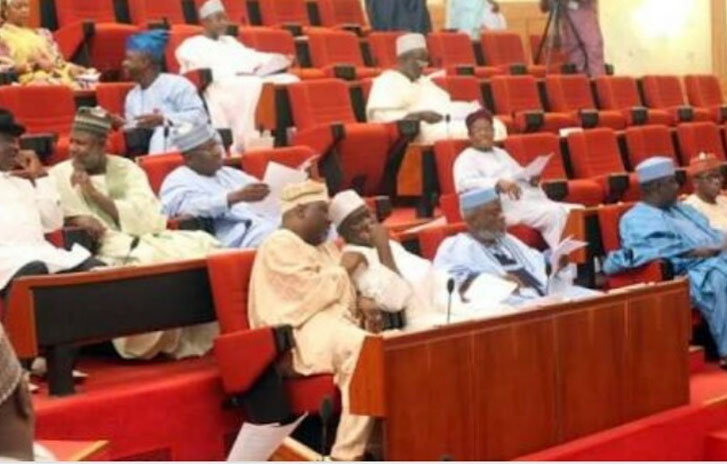The suspension of Justice Walter Onnoghen, Chief Justice of Nigeria and the swearing in of an acting Chief Justice of Nigeria has continued to reverberate across the country, forcing the Senate to reconvene on Tuesday, January 29 to look into the matter.
The Red Chamber after deliberations on the New Minimum Wage Bill 2019 adjourned its plenary on Thursday, January 24 to reconvene on February 19, 2019.
But the decision to reconvene next week followed the suspension of Justice Onnoghen by President Muhammadu Buhari on Friday
The National Assembly would hold a leadership meeting on Sunday over the matter, a source told Channels.
The President suspended Onnoghen pending determination of charges brought against him by some petitioners and thereafter appointed and swore in Justice Ibrahim Mohammed.
He explained that decision to suspend Justice Onnoghen was at the request of the Code of Conduct Tribunal (CCT) over allegations that he failed to declare his assets.
The suspension sparked mixed reactions from individuals and groups within and outside the country.
But the Presidency insisted that there was no political undertone in the suspension of the judge, stressing that it was purely about fighting corruption.
On his part, Professor Itse Sagay, a Senior Advocate of Nigeria, stated that the right thing to do was for any self-respecting judge accused of breaching the Constitution to step down until such case was cleared.
Meanwhile, the European Union has raised concern with Justice Onnoghen’s suspension and questioned the process and timing of the decision to suspend him.
Similarly, the United States government said the decision has weakened the determination of the government and political parties among others to ensure a process that would lead to credible elections in the country.
In a statement on Saturday, the US Embassy in Nigeria said it had taken note of widespread criticisms that the suspension is illegal.
“The Embassy of the United States is deeply concerned by the impact of the executive branch’s decision to suspend and replace the Chief Justice and head of the judicial branch without the support of the legislative branch on the eve of national and state elections,” the statement read.
“We note widespread Nigerian criticism that this decision is unconstitutional and that it undermines the independence of the judicial branch. That undercuts the stated determination of government, candidates, and political party leaders to ensure that the elections proceed in a way that is free, fair, transparent, and peaceful – leading to a credible result.
“We urge that the issues raised by this decision be resolved swiftly and peacefully in accordance with due process, full respect for the rule of law, and the spirit of the Constitution of Nigeria. Such action is needed urgently now to ensure that this decision does not cast a pall over the electoral process.”
(Cable)

